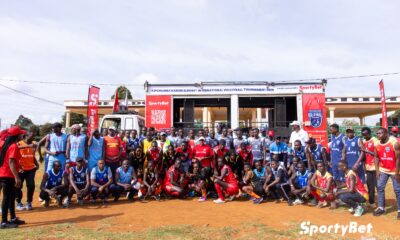Nakuru County Director of Gender Clement Gisore has raised the red flag over an increasing number of boys dropping out of school and joining organized criminal gangs as a result of neglect by guardians.
Gisore, attached to the State Department of Gender expressed concern that stakeholders including the family unit, religious and learning institutions, policymakers and mentors had placed greater emphasis on empowerment of the girl-child to the disadvantage of boys.
Speaking during a training session on strengthening documentation of Gender Based Violence for the County Gender sector working committee, the Director advocated for the empowerment of the girl child and the strengthening of the boy child.
“Young men are literally “on their own” in this world. They maneuver their way in life with little or no mentorship. We need the right mentors who will give young men platforms to learn from the most experienced and exposed members of the community who will assist them develop themselves holistically. It is the high time men across all social classes make deliberate efforts to salvage the boy child. Men need to deliberately develop themselves to become visible mentors in their families and communities for the sake of the boy child,” advised the Director
Get breaking news on your Mobile as-it-happens. SMS ‘NEWS’ to 20153
He expressed concern that COVID-19 pandemic had contributed to increased cases of gender-based violence, early marriages and teenage pregnancies.
Gisore further noted that since most women were caregivers many of them had been exposed to increased risk of getting infected with COVID-19.
“The government is working with the civil society, nongovernmental organizations, security agencies and health care providers on detection, documentation, prevention and legal remedies of gender based violence.
There is a surge in GBV cases with perpetrators identified as mainly close family members such as intimate partners and relatives.
Coordinator of the United States Agency for International Development (USAID) funded ‘Tujenge Jamii Project’ Ms Hellen Nyongesa Malava said health workers need to be trained to improve their capacity to screen and respond appropriately to survivors of Gender Based Violence.
She said difficulties in accessing healthcare services and the fear of seeking counseling because of the containment measures are some of the challenges that the victims face.
“Tujenge Jamii Project’ is empowering the women and youth groups to equip community members at the grassroots level with knowledge on GBV, how they can protect themselves and where to seek medical help when they face such situations. Cases of rape, female genital mutilation and illegal abortions have also increased significantly in the past one year. The rise in these forms of violence, where women and girls are the main victims, is attributed to stress as a result of economic hardship, among other causes,” she state
She said many at the grassroots do not even know that the National Police Service through the Directorate of Community Policing, Gender and Child Protection has established a toll-free helpline where cases of GBV can be reported and those affected get support” she notes
Ms Malava noted that the move by National Police Service gives hope that women and girls who are, and have been, at risk of domestic and sexual violence can comfortably seek support.
Cosmas Mutua from Hope in Life organization observed that male survivors of Gender based violence rarely report to police and medical authorities. He said they only did so when the physical effects of attacks required urgent intervention.
He lamented that most women stay in violent relationships due to lack of alternative of economic support ,concern for their children and lack of support from their family and friends, love and hope that their partners will change.
“The consequences of GBV are severe particularly for women. They are vulnerable because the vices are condoned by customs, reinforced by institutions and the fact that most rural women have limited knowledge on their rights” he stated.
Mutua said outdated cultural beliefs had legitimized violence against men to an extent that most were unaware when they were being subjected to GBV.
He said the boy child needs to be empowered through talk shows, public barazas, churches and public forums.

 Politics1 week ago
Politics1 week ago
 General News1 week ago
General News1 week ago
 General News6 days ago
General News6 days ago
 Sports1 day ago
Sports1 day ago






